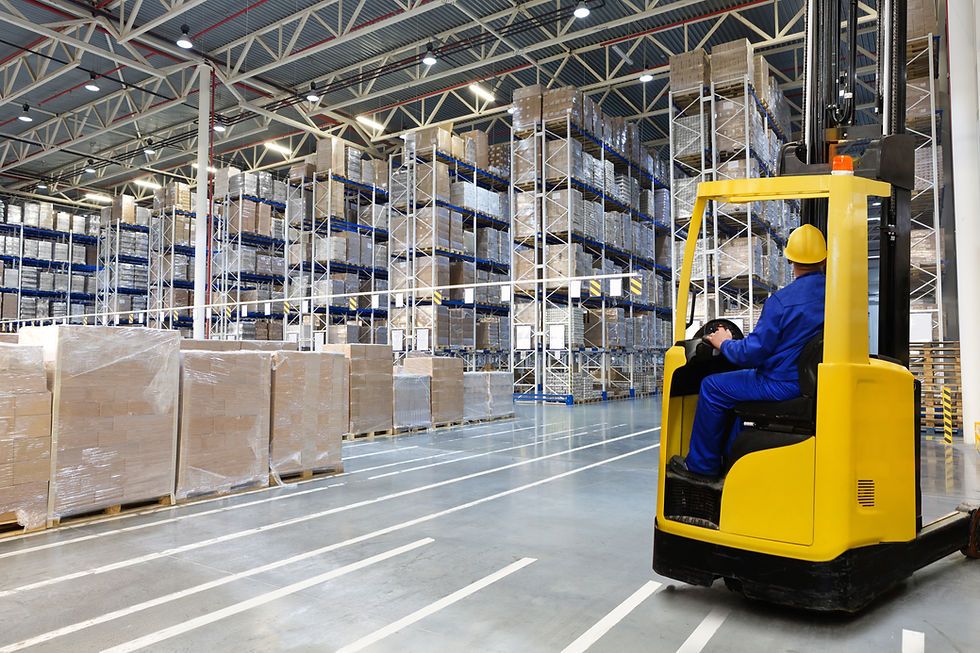Flex space is a lifeline for small businesses craving both office polish and warehouse grit.
- CRETRIAD
- Jun 18, 2025
- 2 min read
Flex space is a lifeline for small businesses craving both office polish and warehouse grit. These chameleon-like properties—part sleek office, part sturdy storage—offer adaptable layouts, low cos

ts, and short leases, ideal for Triad startups juggling e-commerce or crafts. With roll-up doors and shared Wi-Fi, they spark growth without breaking the bank.
Why Flex Space is Key for Small Businesses
Flex space, blending office and warehouse functions, is a cornerstone for small businesses (1–50 employees) needing versatile, cost-effective real estate. Here’s why it’s critical, with Triad context:
Versatility for Mixed Needs:
Hybrid Layouts: Flex spaces (5,000–50,000 sq. ft.) combine office areas (50–70% of space) for admin or client meetings with warehouse sections (roll-up doors, 14–18 ft. ceilings) for storage or light production. In the Triad, businesses like craft studios or e-commerce wholesalers, HVAC, and franchises use these for inventory and online sales hubs.
Customizability: Tenants can adjust layouts (e.g., add partitions or shelving) to suit needs, perfect for startups scaling up, as seen in Greensboro’s flex parks.
Consolidates operations under one roof, boosting efficiency by 20–30% through faster internal communication, unlike separate office/warehouse leases.
Cost-Effectiveness:
Lower Rents: In the Triad, flex space rents range from $8–$14/sq. ft., 50% cheaper than traditional office space ($20–$30/sq. ft.). A 2,000 sq. ft. flex unit at $28,000/year saves $16,000 vs. an office alone.
Shared Amenities: Leases often include Wi-Fi, conference rooms, cutting utility/setup costs . High Point’s RISE Commercial District offers such perks, with utilities bundled.
Short-Term Leases: Month-to-month or 1–3-year terms, vs. 5–7 years for offices, reduce risk for small businesses, ideal for Triad’s growing firms like artisans or small business startups.
Frees up capital for growth, critical when 80% of small businesses cite cash flow as a challenge
Support for E-Commerce & Growth:
E-Commerce Fit: With e-commerce sales hitting $1.2T in 2025, flex spaces support small online retailers by combining storage (e.g., inventory) with office functions (e.g., order processing), as in Greensboro’s logistics zones.
Scalability: Flexible layouts and expansion options (e.g., adjacent units) allow businesses to grow without relocating.
Attracts talent and simplifies operations, with 60% of small businesses valuing location flexibility
How Many Small Businesses Make Up the U.S. Economy?
Small businesses (1–499 employees, per SBA) are the backbone of America’s economy:
Count: 33.2 million small businesses in 2024, accounting for 99.9% of U.S. firms (SBA data). Of these, 81% (27 million) have no employees (sole proprietors), while 19% (6.2 million) employ 1–499 workers.
Economic Impact: They employ 46% of the private workforce (61 million jobs) and generate 44% of U.S. GDP ($10T annually). In the Triad, small businesses drive 70% of the 900,000 jobs, per EDPNC.
Flex Space Relevance: About 15% of small businesses (5 million) need warehouse or industrial space, with flex space serving 1–2 million (e.g., e-commerce, contractors), especially in hubs like the Triad.



Comments